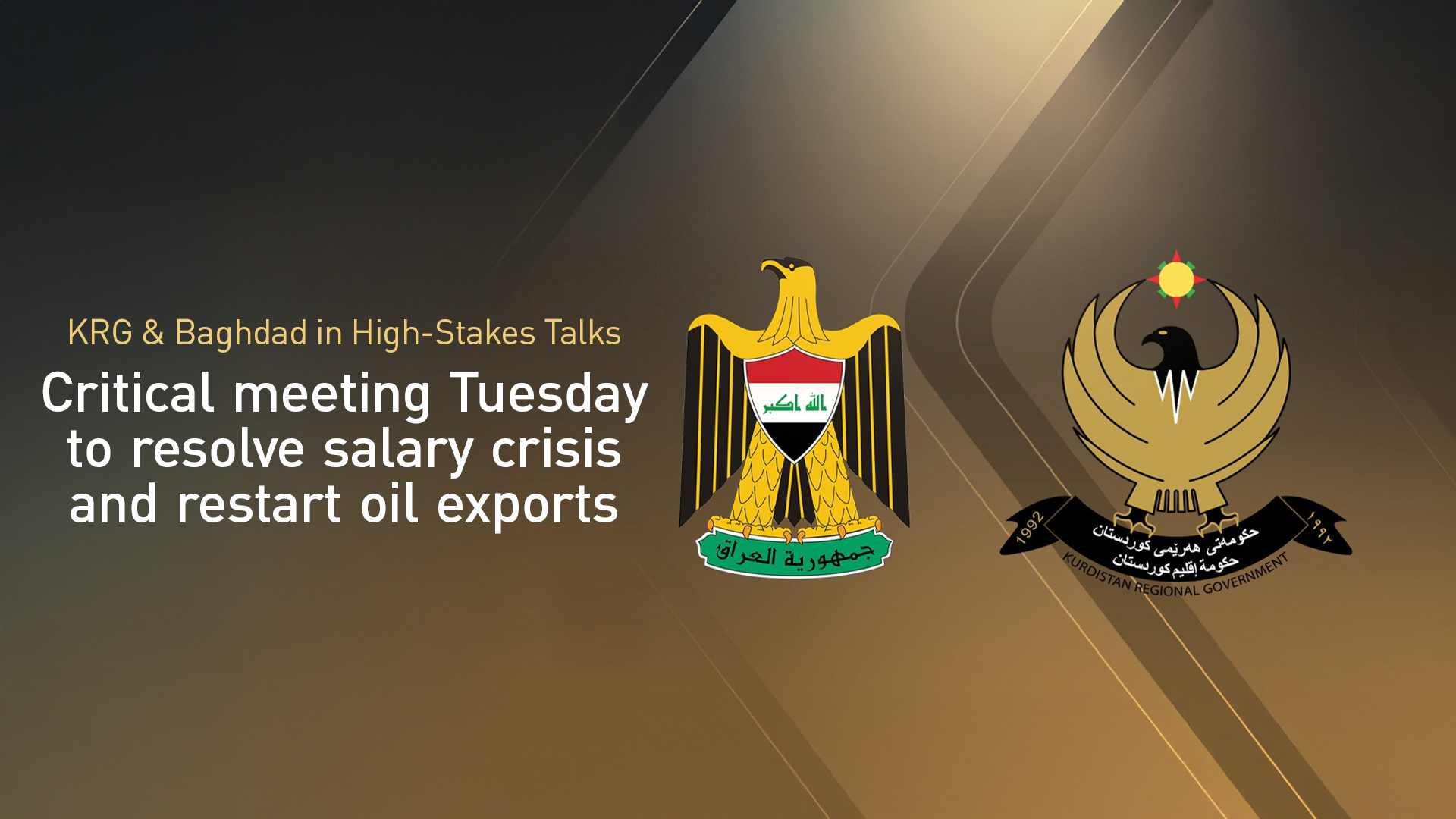Erbil, Baghdad Set for Crucial Talks on Salaries and Oil Exports
High-level talks are set for Tuesday between Erbil and Baghdad to resolve disputes over oil exports and KRG salaries. Baghdad demands oil and revenue transfers first, but the KRG's production has been crippled by drone attacks.

By Kamaran Aziz
ERBIL (Kurdistan 24) – High-level committees from the Kurdistan Regional Government (KRG) and the Iraqi federal government are scheduled to hold a crucial meeting in Baghdad on Tuesday to tackle the deeply contentious issues of public sector salaries and the resumption of the Kurdistan Region's oil exports, amid pressing questions over the implementation of their bilateral agreement.
The high-stakes meeting, set for Tuesday, aims to find a breakthrough on a deadlock that has left hundreds of thousands of KRG employees without pay, with Baghdad insisting on conditions that Erbil has struggled to meet due to external pressures.
According to follow-ups by Kurdistan24, the exact location for Tuesday's critical talks had not yet been finalized, with the venue expected to be either the federal Ministry of Finance or the reception halls of the Iraqi Council of Ministers.
The federal government's position remains firm, linking the payment of salaries directly to the KRG fulfilling its obligations under their recent understanding. Atwan Al-Atwani, the head of the Iraqi Parliament's Finance Committee, stated in a press conference that "the sending of the Region's employee salaries by the Iraqi Ministry of Finance is contingent upon the conditions stipulated in the agreement between the regional and federal governments."
Members of the parliamentary committee have provided specific details on these conditions. Mohammed Nouri, a member of the Finance Committee, confirmed the purpose of the upcoming meeting in a press conference. "We have a joint meeting, which the committees of the Kurdistan Regional Government and the federal government will attend, with the goal of implementing the Region's obligations as decided by the Iraqi Council of Ministers," he said.
Nouri detailed these obligations, stating, "The Iraqi Council of Ministers has decided that the Kurdistan Region must hand over 230,000 barrels of oil to the federal government to be exported through the SOMO company, and simultaneously hand over 120 billion dinars in non-oil revenues."
He made it clear that only after these terms are met would the federal government release the funds. "After the implementation of the agreement and the handover of oil and revenues, the salaries of the Region's employees will be sent in full," Nouri stated, adding with a degree of optimism, "We expect to reach a solution in tomorrow's joint meeting."
Ikhlas Al-Dulaimi, another member of the Iraqi Parliament's Finance Committee, told Kurdistan24 that the meeting will focus on the "mechanism for resuming oil exports and non-oil revenues." She specified that once the Region’s oil is exported under the new mechanism, Baghdad will send the delayed salaries for May, June, and July to KRG employees.
However, the federal government's justification for withholding salary payments comes at a time when the Kurdistan Region's ability to meet its oil production targets has been severely compromised by external attacks. According to a report compiled by an Iraqi government delegation that recently visited the Kurdistan Region, drone attacks carried out by "outlaw Iraqi militias" have had a devastating impact on the region's oil infrastructure.
The delegation's report found that these attacks have caused the Region's daily oil production to plummet from 280,000 barrels to approximately 80,000 barrels. This finding by a federal body highlights the significant security challenges hampering the KRG's capacity to fulfill the agreement's terms.
Underscoring the intensity of this threat, the Eco Iraq Observatory for Economy has indicated that the Kurdistan Region's oil fields have been attacked by approximately 58 drones in the current month alone, placing Tuesday's meeting at the critical intersection of political negotiation and regional security.
